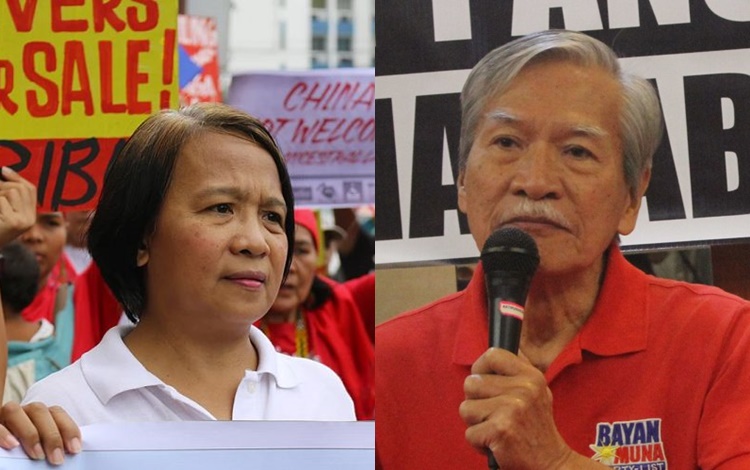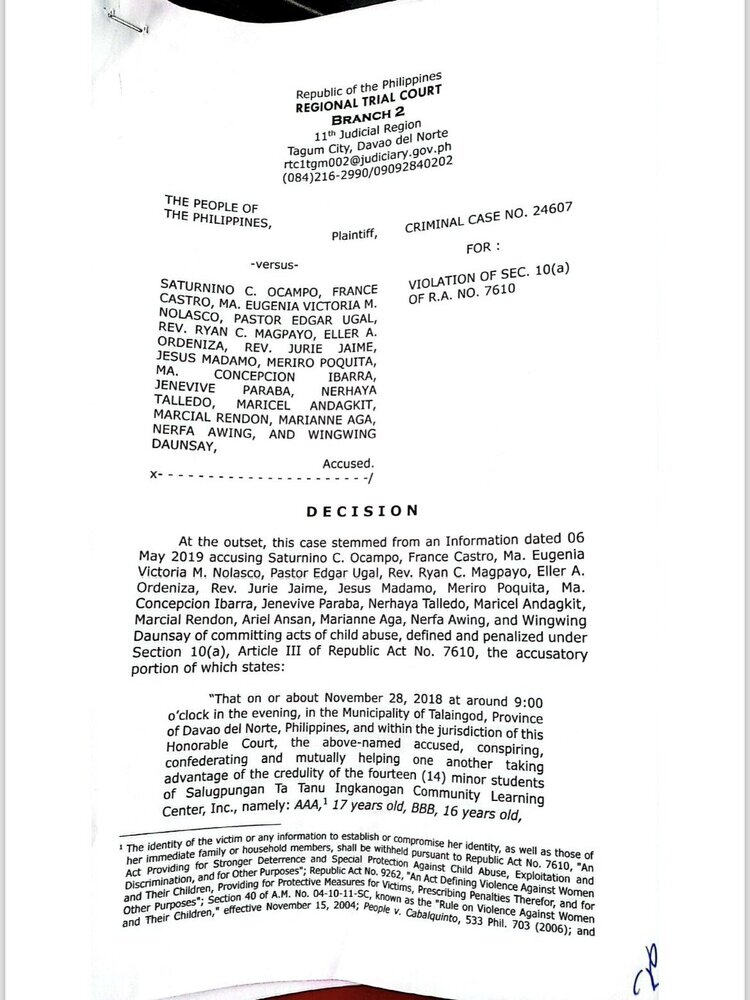In a landmark ruling, the Tagum City court has convicted ACT Teachers Representative France Castro, former Bayan Muna Representative Satur Ocampo, and several co-accused for violating the Special Protection of Children Against Abuse, Exploitation, and Discrimination Act. The court sentenced Castro, Ocampo, and their co-accused to imprisonment ranging from 4 to 6 years. This case traces back to a controversial 2018 incident in Talaingod, Davao del Norte, involving the transportation of 14 minors.

The incident occurred on November 28, 2018, when Castro, Ocampo, and other activists were intercepted by authorities while transporting minors from a Lumad school. The group claimed they were on a “rescue mission” to protect the children from alleged militarization and closure of their school. However, authorities charged them with child abuse and trafficking, alleging that the minors were taken without parental consent and exposed to potential harm.
During the trial, the prosecution presented evidence suggesting that the children’s rights were violated during the transportation. Witnesses testified that the minors were taken without the necessary legal documentation and consent from their parents or guardians. The defense, however, maintained that the activists acted in the best interest of the children, who were reportedly living under dire conditions due to the militarization of their communities.
Despite the defense’s arguments, the court found Castro, Ocampo, and their co-accused guilty of violating the Special Protection of Children Against Abuse, Exploitation, and Discrimination Act. The judge emphasized that while the intention to help the children might have been genuine, how the activists conducted the rescue breached the legal protections afforded to minors.
The conviction has sparked significant outrage among human rights and activist groups. Bayan, a prominent progressive organization, has been vocal in its support for Castro and Ocampo, asserting that the court’s decision is a blow to human rights advocacy. They argue that the activists’ actions were misinterpreted and criminalized and that the ruling sets a dangerous precedent for future humanitarian missions.
In response to the verdict, Bayan and other allied groups have organized an indignation protest scheduled for Monday, July 15. The protest aims to denounce the court’s decision and highlight what they perceive as a crackdown on legitimate human rights work. Bayan has called on its members and the general public to join the protest and show solidarity with Castro, Ocampo, and the other convicted activists.
The case has garnered widespread attention both locally and internationally, with various human rights organizations expressing concern over the implications of the conviction. Critics argue that the ruling may deter activists from engaging in rescue missions and other humanitarian efforts, fearing legal repercussions.

As the activists prepare to appeal the decision, the case underscores the ongoing tensions between government authorities and progressive groups in the Philippines. The conviction of Castro, Ocampo, and their co-accused is a significant development in the country’s legal and political landscape, raising important questions about the protection of children’s rights, the role of activists, and the limits of humanitarian interventions.

Fàir decision by the court